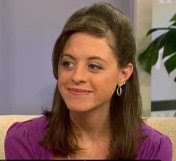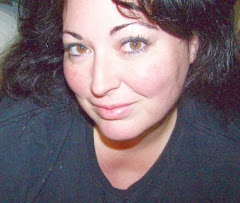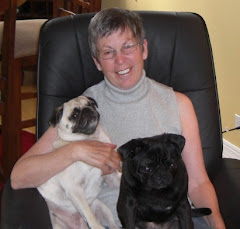I wanted to address/respond to this quote by Laura Witjens (An 'egg donor' and Chair of the National Donation Gamete Trust in the UK)in this article:
"Finding Your Biological Family" http://www.guardian.co.uk/lifeandstyle/2009/sep/26/finding-biological-family-donor-register
Laura Witjens: "I would try to help them find any missing links, but I would resist letting them call me mother because I am not. I am absolutely clear to my own children that I have only one daughter and one son, and that although there may be people out there who have a bit of mummy in them genetically, they are not my children."
Although I'm very grateful, on one hand, that Laura Witjens (An 'egg donor' and Chair of the National Donation Gamete Trust in the UK) promotes 'open donors', I think this really demeans the importance and responsibility of biological/genetic parents NO MATTER HOW A CHILD IS CONCEIVED. The intentionality of 'they are not my children' is not respectful or deserving of respect.
This really sums up why I am very much against the practice of 'donor' conception as a whole. She IS their mother. Her 'non-choice' children are just as much her children as her 'choice' children. Yes, her 'non-choice' children have other loved ones but that does not absolve her from responsibility – ESPECIALLY emotional responsibility. This really cuts to the heart of the problem with the disconnects that even 'open donors' create.
Thursday, October 8, 2009
This really cuts to the heart of the problem with the disconnects that even 'open donors' create.
Posted by whosedaughter
Subscribe to:
Post Comments (Atom)

.jpg)
.jpg)



.jpg)


4 Responses to "This really cuts to the heart of the problem with the disconnects that even 'open donors' create."
Here are my thoughts. Perhaps they are similar to Laura's?
Donor Children - they are my genetic children - there is no question. I am their biological father - this is a fact. I am not their Dad, I am not their guardian, I will not nurture or mould them into the people that they will become. I will not teach them how to speak, show them how to kick a ball, and they will not emulate my mannerisms. Therefore they are going to be different to my children.
My opinions may change if any of them ever look me up - who knows?
If they do - they can call me by whatever they feel comfortable with, Dad, or by my given name. It's their choice - whatever they feel happy with.
I'd be interested in your thoughts as to an 'ideal' solution, would it be to outlaw donor conception completely, or to change it in some way?
Seed Monkey,
It's no secret that I am not a fan of this conception method but there is NO WAY "donor" conception can be outlawed at this point. I can't speak for all, but YOU are an example that I believe is the ONLY ethical/moral way to handle this conception arrangement. I, many wish and hope that their biological father was as open hearted as you seem to be. I do disagree with one point you made though, your "donor" children ARE your children (just as much as your "parenthood choice" children, but you relinquished your parenting responsibilities towards them pre-conception). It's NEVER too late to reconnect in whatever manner your "donor" children feel comfortable with.
Thank you for sharing.
I'm a bit confused and a bit worried about unkindness really; if a donor-conceived adult comes looking for their donor, what would words do the Donation Gamete Trust reccomend they use? Is it>
"you already have a family" or
"I don't want you to be in my life because I already have a family and don't count you as a family member"
Also confused as I have seen DI-adults in tears over their plight. And just because the DGT don't like their reactions or their words, it doesn't make the words less true. Sometimes I think the adults involved in IVF need counselling instead of burdening the others with their issues.
But anyway, I am just wondering how the DGT recommend handling the donor-conceiveds' distress as Seed Monkey says "IF any of them look me up"
Seed monkey,
I agree with the first half of what you said, up until you are not their "Dad" or their guardian. I think for most donor conceived adults they do not see their donors in this light. For many of us raised in heterosexual households, our social fathers are our "dad" are the donor is father. I would never call my dad my father, and I do not think of my biological father as my dad. For most of society these two words are interchangeable, but for DC adults this is a legitimate difference.
I think to say that you will not nurture or mold them into who they are is not necessarily true. Many things like personality and mannerisms have been found to be genetic. Many reunions with the donor children as adults, the father and "child" have found so many peculiar idiosyncrasies that they share that its really quite eerie.
I think, being that you have not been contacted by any of your offspring, I think you are right that some of your thoughts may change in that situation. But I respect that you are willing to a) be known to them if they so wish, and b) let them guide the potential relationship.
As whosedaughter said, I think what your mentality is is a doable route. While I'm opposed to the system as it stands, and I feel that open donors are perhaps the "ideal", but only if done in the correct way. There are so many varying extremes of open donors - from ones that only have minimal contact with the parents to ones that are a part of the child's life to ones that are co-parenting with the social parents!!! While I do not expect everyone to co-parent with their donor, I think that the donor should be willing to be an important part in that child's life.
There's an adoptive mother Dawn (This Woman's Work is her blog) and her daughter Madison has a GREAT relationship with her birthmother. I see their situation as my "ideal" for donor conception. Madison knows and understands that Pennie is her biological mother and she loves her, but she knows that Dawn is her mommy and loves her too.
Kids have room to love as many people that are in their lives. Adults need to do the same.
Post a Comment